| Profile | Posted by | Options | Post Date |
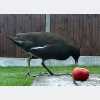
|
Kense
|
Report
|
12 Jan 2014 18:56 |
|
Another point is that although women weren't able to vote in parliamentary elections, they could vote in local elections if they satisfied certain qualifications.
For this reason some women do appear in nineteenth century electoral rolls and as many as one million were so entitled by 1914.
|
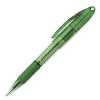
|
InspectorGreenPen
|
Report
|
12 Jan 2014 18:12 |
|
THE GROWTH OF UNIVERSAL SUFFRAGE IN THE UNITED KINGDOM
TIMELINE
1265 Parliament established. It contains 2 chambers. One is 'the Lords' - unelected aristocrats. The other is 'the Commons'. These Members of Parliament (MPs) are smaller landowners and are elected only by male landowners.
1642-60 English Civil War. This is a war between the Parliament and the King for who has control of the state. King Charles I is executed and England is briefly a Republic. In 1660 the monarchy is returned, but it never regains its power. From now on, the Prime Minister, chosen by Parliament has the most influence.
1707 Act of Union unites England/Wales and Scotland. The United Kingdom is now formed.
1819 The Peterloo Massacre. A mass demonstration in favour of universal male suffrage is attacked by troops and 15 people are killed.
1832 Great Reform Act. Before this time only landowners could vote for MPs to sit in the House of Commons. This meant 1 in 7 men could vote. (440,000 people) After 1832 the male urban middle classes gain the vote, and so the electorate increases to 1 in 5 men (650,000 people).
1867 Second Reform Act. This extends the vote to the skilled urban male working class. The electorate increases to 1 in 3 men.
1884 Third Reform Act. The vote is now given to working class men in the countryside. The electorate is now 2 out of 3 men.
1918 Representation of the People Act. Almost all men over 21 years old, and women over 30 years old now have the vote.
1928 Effectively all women and men over 21 now have the vote.
|

|
Linda
|
Report
|
12 Jan 2014 18:12 |
|
Thank you
I have read all comments and will have no doubt see where all his children were living!
I do know when his sister Elizabeth Died so I gues I will have to buy her Death certificate as I cannot find her Death in the local paper!
I shall see if my local registry office can help me to see if they can find his Death registered at their office!
Thank you all for your help!
kind regards.
Linda. :-)
|
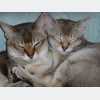
|
Kucinta
|
Report
|
12 Jan 2014 12:24 |
|
Actually by 1911 the vote was not restricted to owners of homes, but also some tenants. It seems to have depended on the value of the tenancy and there seems to have been some variation between counties and boroughs.:
"
Counties 1867-1885
The Representation of the People Act, 1867, left existing franchises untouched. It extended the franchise to:
(a) holders of life interests, copyholds and leases of sixty years and more worth £5 per annum.
(b) tenants occupying land worth £12 per annum
It introduced for these franchises the twelve months qualifying period and provisions as to rateability and payment of rates required from 1832 for the borough occupation franchise.
Boroughs 1867-1885
The Act of 1867 left existing franchises untouched. The Act extended the franchise to:
(a) inhabitant occupiers, whether as owners or tenants, of any dwelling-house within the borough
(b) lodgers occupying separately and as sole tenants and residing in the same lodgings worth £10 a year unfurnished being part of the same dwelling-house.
It provided that occupiers, and not owners, should be rated for the poor rate, which extended the franchise to many more occupiers than before.
The Parliamentary and Municipal Registration Act, 1878, defined dwelling-house as including part of a house separately occupied as a dwelling (ie although part of the house was an office, shop or workshop). It also provided that occupation of additional lodgings or different lodgings in the same house in immediate succession should not disqualify lodgers and allowed two joint lodgers to vote if the value of the lodgings divided by the number of lodgers gave £10 for each lodger.
Counties 1885
The Representation of the People Act, 1884, preserved existing franchises. It extended the existing household and lodger franchises as enjoyed in boroughs to householders and lodgers in counties (ie inhabitant occupiers as owners or tenants of any dwelling-house; lodgers occupying rooms worth £10 a year unfurnished).
It also extended the franchise to:
(a)tenants occupying land or tenements worth £10 per annum
(b)those inhabiting by virtue of office, service or employment dwelling-houses in which their master did not reside (the 'service franchise')
The £50 rental qualification introduced in 1832 was abolished, but those qualified in that way were now qualified as occupiers and by the Registration Act 1885 were to be registered as such.
Boroughs 1885
The 1884 Act extended the definition of the £10 occupation franchise to refer to 'land or tenement' instead of only buildings. It granted the 'service franchise' as in counties.
The county and borough household, lodger and occupation qualifications were now assimilated, with minor exceptions. The county electorate still included those who held the various 'ownership' franchises. The borough electorate included those who held the 'freeman' franchise or any other franchises reserved by the Act of 1832, although in practice only the 'freeman' franchise was probably significant: boroughs still created freemen whereas the other pre-1832 reserved franchises applied only to those individuals who had held them before 1832."
|

|
ErikaH
|
Report
|
12 Jan 2014 10:14 |
|
http://www.genesreunited.co.uk/boards/board/ancestors/thread/1336129
|

|
ErikaH
|
Report
|
12 Jan 2014 10:12 |
|
To find possible death, use freebmd. Use phonetic surname search...........
Where did the man's children live?
|

|
ErikaH
|
Report
|
12 Jan 2014 10:10 |
|
Linda
Why don't you look at the Electoral Franchise info which can be found by googling? You will then have a clear picture of who was eligible to vote - and when
|

|
Flip
|
Report
|
12 Jan 2014 09:42 |
|
According to the image it was a tenament - they were living in 1 room - so he would not appear or the ERs I don't think.
|
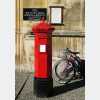
|
Chris Ho :)
|
Report
|
12 Jan 2014 09:35 |
|
CRAIG, John Head Married M 51 1860 Horsekeeper Ahoghill Ireland County Autrim
279 CRAIG, William Son Single M 18 1893 Helper Up Glasgow Scotland
CRAIG, Emily Daughter Single F 16 1895 Glasgow Scotland
CRAIG, Robert Son M 9 1902 School Glasgow Scotland
RG number: RG14
Piece: 30559
Reference: RG14PN30559 RG78PN1752 RD558 SD2 ED2 SN279
Registration District: Newcastle upon Tyne
Sub District: St Andrew
Enumeration District: 2
Parish: St Andrew
Address: 20 Morpeth St Newcastle of T
County:
PYLE, John Head Widower M 75 1836 Bricklayer Sunderland County of Durham
277 DIVINE, Elizabeth Sister Widow F 62 1849 Char Woman Seaham Harbour County of Durham VIEW
RG number: RG14
Piece: 30559
Reference: RG14PN30559 RG78PN1752 RD558 SD2 ED2 SN277
Registration District: Newcastle upon Tyne
Sub District: St Andrew
Enumeration District: 2
Parish: St Andrew
Address: 20 Morpeth St N/c
County: Northumberland
SWEET, Ralph Head Married M 29 1882 Cartman Newcastle of T N/c
278 SWEET, Elizabeth Wife Married
6 years F 27 1884 Newcastle of T
278 SWEET, Mary Elizabeth Daughter Single F 6 1905 Newcastle of T
278 SWEET, Elenaor Daughter F 4 1907 N/c Newcastle of T
278 SWEET, Ann Daughter F 2 1909 N/c Newcastle of T
278 SWEET, Grace Daughter F 0 1911 N/c Newcastle of T
RG number: RG14
Piece: 30559
Reference: RG14PN30559 RG78PN1752 RD558 SD2 ED2 SN278
Registration District: Newcastle upon Tyne
Sub District: St Andrew
Enumeration District: 2
Parish: St Andrew
Address: 20 Morpeth St Newcastle of T
County: Northumberland
(also at 20)
Chris :)
|
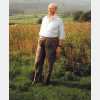
|
SylviaInCanada
|
Report
|
12 Jan 2014 00:32 |
|
another way to search, possibly .....................
I see from a tree on ancestry that John married Msry, and they had several children
it is possible that he moved in with one of those children after his sister died ................. but again he might well not be on the ER. It means that he could ahve moved out of the area though.
children according to that tree
John Pyle
1857 –
Frances Pyle
1860 –
Charles Pyle
1862 –
Mary Ann Pyle
1865 –
Mary Pyle
1867 –
William Pyle
1870 –
|

|
SylviaInCanada
|
Report
|
12 Jan 2014 00:23 |
|
I think Kath is quite correct ......................
it was only owners who had the right to vote, and were therefore on the Electoral Rolls
therefore renters would not be on there ................. unless they owned property somewhere else, in which case they would be on there.
|

|
KathleenBell
|
Report
|
11 Jan 2014 23:53 |
|
Do you have reason to believe they owned the property? If they were only renting - which most people did in those days, then I don't think they would be on the electoral roll anyway (although I may be wrong).
Kath. x
|

|
Linda
|
Report
|
11 Jan 2014 22:55 |
|
Brummiejan
Johns full name was John william Pyle
|

|
brummiejan
|
Report
|
11 Jan 2014 22:49 |
|
??
Name: John Pyle
Estimated Birth Year: abt 1837
Date of Registration: Apr-May-Jun 1883
Age at Death: 46
Registration District: Gateshead
Inferred County: Durham
Volume: 10a
Page: 503
|

|
Linda
|
Report
|
11 Jan 2014 22:47 |
|
you are right Thank you for reminding me Kucinta
but the male is not on the Electoral roll either!
This is what I have!
1911;
DIVINE Elizabeth age 62yrs, B.1849 Seaham Harbour.Co Durham.- Newcastle upon tyne. St Andrew.St Andrew Northumberland.
PYLE John age 75yrs, Born 1836 Sunderland.Durham- Newcastle upon Tyne. St Andrew. St Andrew.
They were both residing at 20 Morpeth Street.Spital tongues.Newcastle upon Tyne.
Why is John pyle not been put on the roll though.
I have found Elizabeth Divine`s Death of June Qtr 1927. newcastle upon Tyne.
But cannot find John`s Death anywhere.
Can anyone help me please,.
Thank you.
Linda
:-) :-)
|

|
Kucinta
|
Report
|
11 Jan 2014 22:40 |
|
The sister wouldn't have been on the electoral roll in 1911, as women weren't enfranchised then.
|

|
Linda
|
Report
|
11 Jan 2014 22:38 |
|
I can find one Death of the Sister but not a Death of the other!
I will do as you suggest BrummieJan :-) :-)
|

|
brummiejan
|
Report
|
11 Jan 2014 22:33 |
|
Linda, you might be better off putting all details on here so people can check for deaths for you.
Jan
|

|
Linda
|
Report
|
11 Jan 2014 22:20 |
|
Hello.
I have a Question that I need an answer too so hopefully one of you kind people can help me on it.
Here goes.
I have a brother and sister living together in the same house they are 62yr and 75yr old. I found them on the 1911 census but unfortunately I cannot see them on any Electoral rolls..
Was it compulsary back in 1911 for the the tenants of the house to be put on the Electoral rolls or not!!
I cannot find them on any of these so it is even harder for me to follow where the brother went or when he Died!!!
Look forward to your Answers!
Linda :-)
|

